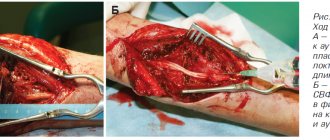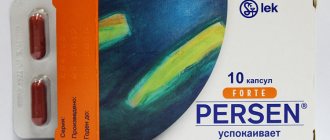Recipes for sedative folk remedies for the nervous system
One of the most popular sedative folk remedies for adults is motherwort. It has a powerful sedative effect and is effective in any form: juice, decoction, alcohol tincture.
A good folk sedative for nerves for women and men is ordinary chamomile. If you brew and drink it every day, your sleep will improve and chronic fatigue will disappear. Hawthorn perfectly relieves stress and anxiety. It can be taken in the form of a water infusion or alcohol tincture.
Also common folk remedies that can calm the nervous system include mint and lemon balm. They can be taken in the form of decoctions, tinctures, or added to tea. They work great for insomnia.
Buy lavender (flowers) on our website
Important! Do not forget about the sedative properties of valerian. This plant helps normalize sleep and cope with stress.
Recipes for sedatives for the nervous system also include folk remedies such as:
- lavender;
- hop cones;
- St. John's wort;
- ginseng;
- Eleutherococcus
Advice! Don't neglect aromatherapy. Essential oils of lavender, cedar, black cumin, bergamot, citrus, ylang-ylang perfectly relax and relieve stress.
Methods and remedies to calm the nerves
It is almost impossible to get rid of the factors that cause dysfunction of the nervous system. But helping the body recover faster and return to normal life again is absolutely necessary. There are medical and non-medical methods for this.
Non-medical methods help relax the body, normalize breathing, allow you to get rid of negative thoughts and thus calm down. These include:
- breathing exercises;
- water procedures (bath of medicinal herbs, contrast shower);
- meditation;
- walks;
- music and the like.
Another way to stabilize the functioning of the nervous system is sedative medications, which are used by almost every third Ukrainian.
Sedatives, or general sedatives, are a group of drugs that restore the normal functioning of the central nervous system: they reduce excitability, enhance inhibitory processes, and regulate the interaction of excitation and inhibition.
Such drugs do not have a direct hypnotic effect, but, by reducing emotional stress, they still promote normal and timely falling asleep and improve the quality of sleep - making it stronger and deeper.
Based on their origin, sedatives are classified into synthetic and natural. Experts increasingly prefer the latter. After all, made from plant materials, they are safer, do not cause addiction or serious adverse reactions.
The most accessible sedatives of natural origin are, in fact, plant materials themselves, which you can collect and prepare yourself or purchase at a pharmacy.
To calm the nerves and overcome insomnia, the following are most often used:
- St. John's wort;
- lemon balm;
- mint;
- valerian;
- oregano;
- hawthorn.
They are used to prepare drinks, herbal baths, and with valerian, for example, they also make special pillows to inhale the aroma of the soothing herb before bed.
Folk remedies for treating stress, anxiety and nervous tension
How to recover from stress using folk remedies? Over the centuries, traditional medicine has accumulated hundreds of recipes for treating stress and anxiety with folk remedies. Here are some proven methods:
- Pour one tablespoon of herbal mixture of tansy, calendula and oregano into a glass of boiling water, leave, strain and drink in equal portions throughout the day.
- Add 1 tablespoon of hawthorn fruit to a glass of boiling water, leave for two hours and take one sip 4 times a day. This infusion will help relieve nervous tension, normalize blood pressure and eliminate dizziness.
- Another folk remedy for nerves and stress is beet juice with honey. It should be mixed in a 1:1 ratio, let it brew for an hour and drink three times a day.
- You can make a good soothing drink by brewing valerian, chamomile, fennel and cumin in boiling water.
Interesting! Among the folk remedies for stress and nervous tension are also soothing baths:
- with lavender;
- with a decoction of rosemary, wormwood and linden;
- with a decoction of oregano.
Advice! To help your child sleep well, add a decoction of thyme to the water when bathing.
Do you want to always be in peace and tranquility? In the catalog of the FitoContinent online store you will find the best folk remedies that can calm your nerves. All you need to do is place an order on the website and very soon you will be able to start treating your nerves with the most effective folk recipes.
Buy hops (cones) on our website
Review
Methods for treating occipital neuralgia
Occipital neuralgia does not appear just like that. It may appear after an injury or previous spinal disease. Stress is a constant in all diseases. A sedentary lifestyle also creates all the conditions for neuralgia, because the neck muscles are under constant tension. Oncology and diabetes mellitus can provoke a pinched nerve. Although doctors call stress the main cause of the disease.
Symptoms and treatment
- Electrical-like pain;
- Constant discomfort;
- Vision problems;
- Nausea;
- Numbness of the scalp, etc.
Neuralgia is treated with medications and folk remedies.
Herbal teas
For occipital neuralgia, it would be good to take a 4-week course of herbal medicine. Teas can be based on plants such as St. John's wort and bedstraw. Herbal infusions are allowed. Dried St. John's wort (2 tbsp) is poured with a glass of boiling water and allowed to stand for 10 minutes. You can drink this tea three times a day. When taking St. John's wort, the skin becomes vulnerable to ultraviolet radiation, so you should not go out in the sun. Fragrant bedstraw is used in the form of flowers, 1 tsp. which are poured with boiling water, left covered for 3 minutes, filtered and drunk 3 times a day.
Compresses for neuralgia
Hot compresses are an effective way to relieve symptoms of a pinched nerve. The procedure is carried out 2 times a day. Treatment is carried out until pain disappears completely. Dried juniper berries can be used as the main ingredient for compresses. First, you need to pour boiling water over them, let them brew for 15 minutes, strain, and wait until the mixture cools. Soak gauze in this decoction and apply it to the sore spot for 20 minutes.
Thyme and arnica have healing properties. Compresses are also prepared from them. Plant flowers (3 tablespoons) are poured with 3 glasses of hot water, heated for 5 minutes, allowed to brew for half an hour, filtered. Gauze is soaked in the liquid, which is subsequently applied to the affected area. You need to keep the compress for 20 minutes.
After such procedures, the pain goes away instantly. However, it is important to take precautions: in order not to catch a cold, the body is covered with warm clothes.
The healing effect of baths
A 15-20 minute bath can relieve symptoms of neuralgia, including pain. Make sure the water temperature is comfortable. After water procedures, you need to dress warmly and lie down in a relaxed state for half an hour. Baths are effective in treating neuralgia, but only in combination with other methods.
One option is an oatmeal bath. To prepare it you need 10 tbsp. oat straw, which should be filled with 2 liters of water. This mixture is boiled for 30 minutes, after which the broth is filtered and poured into the bath.
If you are a fan of the spruce scent, take water treatments with spruce essential oil. Add 1 tbsp to it. milk or olive oil. Mix all this with warm water.
Another good option is a rosemary bath. You will need 9 tbsp. dried leaves of the plant. They are poured with boiling water and left for half an hour. The broth is filtered and then poured into the bath.
Massaging the affected area
For neuralgia, massage 2 times a day is recommended. Because the nerve is pinched, you will experience discomfort and pain, which means all movements should be gentle. Otherwise they will make the problem worse. The sore spot is massaged using oil, such as olive oil. You can mix it with mint essential oil. The massage therapist rubs the oil in his hands to warm it up, then begins to massage the area where the nerve is pinched. 3 minutes is enough to relieve tension.
If after 1 time the pain remains, repeat the session after 15 minutes.
If the occipital nerve is pinched, pine essential oil is dissolved in vegetable oil. Bring the mixture to room temperature by heating it in your hands, and then rub the sore spot for 3 minutes. The procedure is carried out up to 3 times a day. Author: K.M.N., Academician of the Russian Academy of Medical Sciences M.A. Bobyr
How to strengthen a child's nervous system
Training a child’s resistance to various stress factors is the task of wise parents. The child’s nervous system is still weak: it needs reliable protection. It is impossible to protect a child from all problems, but it is possible and necessary to teach him to adapt to unfavorable conditions.
Here are the skills that a child should acquire before school:
- the art of self-hypnosis, driving away “bad” thoughts and obsessive childhood fears;
- relaxation techniques that allow you to unwind after stress;
- art therapy, which helps to throw out negativity on a piece of paper while drawing.
Making your baby laugh, reading a good book to him or allowing him to throw out negative energy in a noisy game means providing the best rest for the baby's nervous system.
How to cure neurosis with medications
Modern pharmacology has a large arsenal of drugs that are ready to help the nervous system return to normal. It’s just important not to self-medicate.
Medicines prescribed for neuroses:
- Barbovalum – an effective fighter against nervous tension and high blood pressure
- Valocordin is a drug that saves you from fears and relieves anxiety
- Adaptol – a medicine against anxiety and irritability with a hypnotic effect
- Afobazol is a medication for adults that improves attention and memory, prevents dizziness, and relieves stress.
How to help a patient? What to do?
- You should know that the grief reaction, regardless of the cause that caused it, goes through several stages:
- Stage 1 - denial. “No, this can’t be!” - the patient thinks. The feeling of unreality, the impossibility of what is happening is a frequent sensation during this period...
- Stage 2 - anger. “Why did this happen to me?”, “This shouldn’t have happened to me!” - the suffering person is indignant.
- Stage 3 - immediate feeling of grief, grief, sadness. A person must mourn his loss, then he will feel better.
- Stage 4 - adaptation to new living conditions, filling the void, establishing new meanings and goals in life, new relationships.
- Normally, the grief reaction under severe stress goes through all stages within a year. In the case of extremely stressful situations (death of a spouse or child), the grief reaction resolves within 2-3 years. If a person cannot live fully after this period, he often has “flashbacks” - memories of the departed, of a stressful situation (we are not talking about forgetting about the departed loved one! - only about continuing to live normally and work without constantly being immersed in memories of the grief event), a pathological grief reaction appears to be taking place.
- The task of the doctor, to whom a patient came with an unresolved grief reaction, is to help him survive and go through those stages that he could not go through on his own and help him adapt to life in a new life situation.
- If a patient has an unresolved grief reaction accompanied by mental and physical symptoms of depression, antidepressant therapy may be necessary.
In the treatment of patients with adaptation disorders and psychosomatic disorders due to an unresolved grief reaction, it is necessary to provide not only pharmacological, but also psychological assistance.
The multidisciplinary CELT clinic employs highly qualified, experienced specialists. You can seek help from a neurologist, psychoneurologist, or psychologist. Timely contact with a specialist is the key to your future health. We are always happy to help!
Causes of nervous system exhaustion
Each person’s body has its own “emergency resource”: a supply of nutrients, hormones, immune factors, microelements. This untouchable resource can only be used in response to some kind of super strong stimulus (stress). The irritant can be a lack of sleep and rest, mental stress, strong emotion, injury, surgery, etc.
Normally, a stress reaction helps a person to mobilize and overcome the problem. But if the body has already used up its emergency resource, and the stimulus continues to act, nervous exhaustion sets in, and then general exhaustion of the body. And in this case, help is needed. And not stimulation with potent medications (there is nothing to stimulate - there are no resources), but help, calm, systematic treatment. We have accumulated extensive experience in the treatment of nervous and general exhaustion, astheno-neurotic syndrome.
How to improve brain function with vitamins
CNS cells need proper nutrition. The most important role in it is played by the following groups of vitamins:
- A – prolongs the youth of the body, strengthens the membranes of neurons; its sources are egg yolk, dried apricots, carrots, red meat.
- B1, B6, B12 – vitamins that restore metabolism, strengthen stress resistance, improve sleep and mood; found in cereals, seaweed, nuts, beans, bananas, liver, potatoes, prunes, seafood, beef.
- C – gives strength, helps increase resistance to diseases, strengthens nerve cells; Citrus fruits, melons, spinach, and tomatoes are considered storehouses of this vitamin;
- D – is responsible for a positive attitude, helps to get out of depression; found in egg yolk, butter, fish oil.
- E – saturates the brain with oxygen, allowing you to quickly recover from stress; foods rich in this vitamin: sunflower oil, nuts, eggs.
Strengthening the nervous system with minerals
In addition to vitamins, normal brain function requires a complex of microelements. It includes:
- phosphorus is a neuron generator found in cucumbers, beans, eggs, fish, mushrooms, and wheat grains;
- sulfur is a source of oxygen contained in cucumbers, almonds, radishes, garlic, strawberries, and onions;
- zinc is a natural antidepressant extracted by nerve cells from sprouted wheat and bran;
- calcium is a mineral that helps restore nerve cells in muscles; Dairy products, many fruits and vegetables are rich in calcium;
- iron is a substance that ensures the restoration of energy balance; found in mushrooms, fish, apples, green vegetables;
- magnesium is a nerve calmer found in almonds, chocolate, and chicory.









